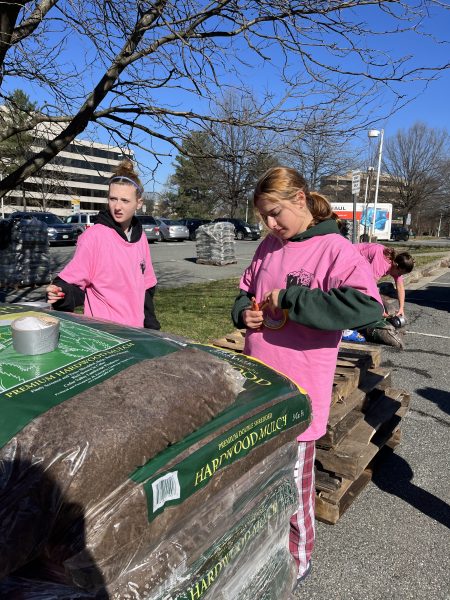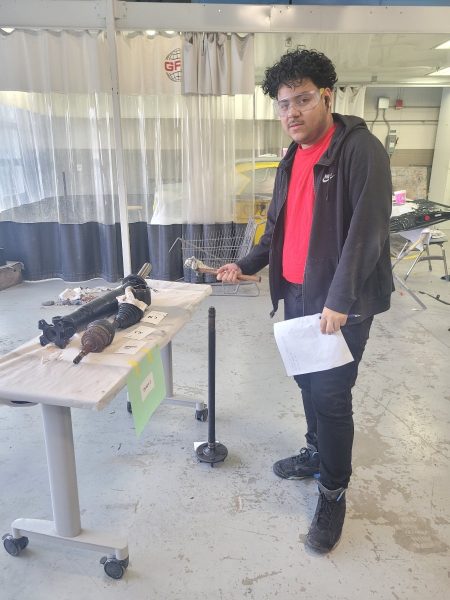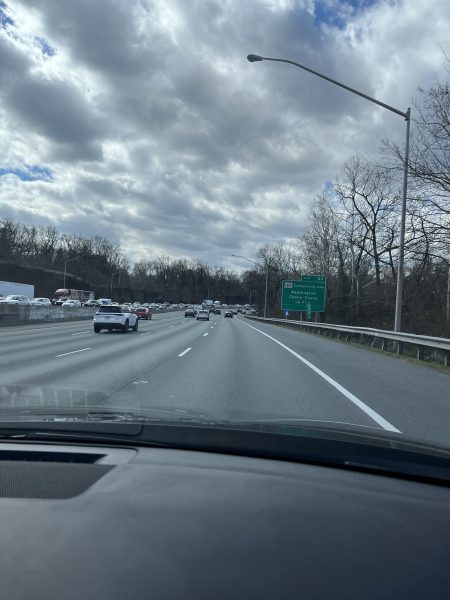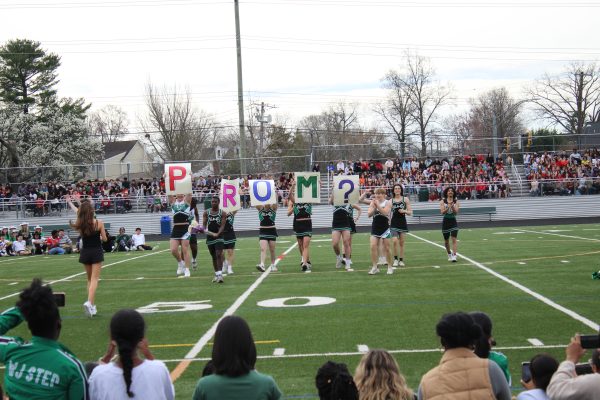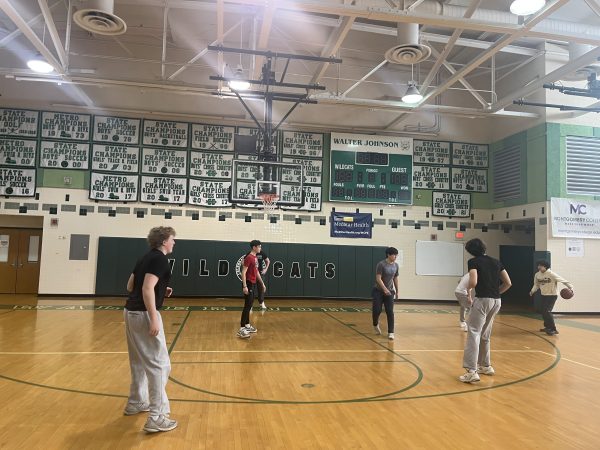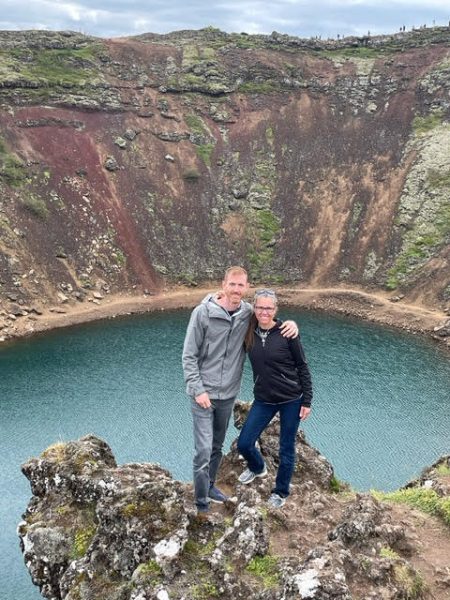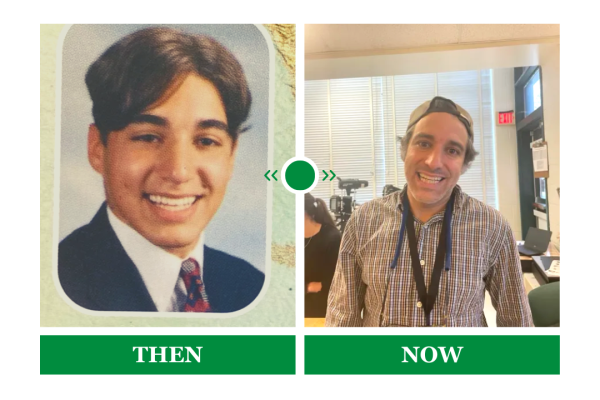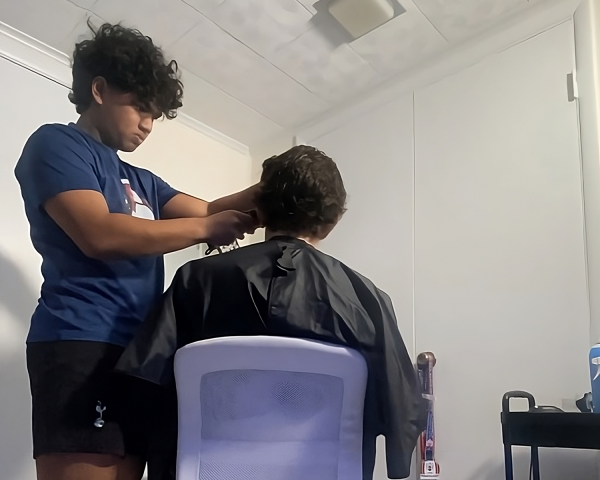Student body goes green
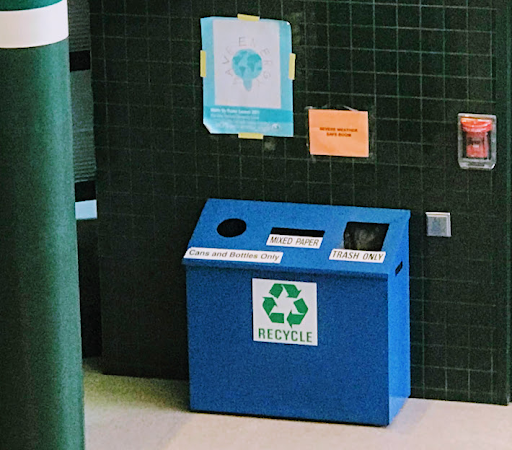
One of the many waste receptacles found adorning the halls of WJ. Awareness of ecological issues has become a topic of growing concern in recent years.
Buses spewing exhaust have returned to their routes. Large piles of trash are generated each day. The steady onslaught of paper worksheets has returned in full force. As schools across the county have returned back to in-person learning, students have had to readjust to more than just the increased proximity to their fellow classmates.
For many in the community, the issue of climate change and environmental protection is something that weighs heavily on their minds. With reports spreading about hotter temperatures, elongated droughts and rising sea levels, anxiety surrounding this coming catastrophe has increased markedly. Many have taken it upon themselves to take action to respond to this crisis – though doubts remain about the efficacy of their efforts.
By and large, the merits of conservation and ecological consciousness have been ingrained in the minds of students since a young age.
“We would always have some kind of global awareness day… in elementary school we would do an Earth Day activity. So we were exposed early to care for the environment,” junior Jack Stashower said.
The potential consequences of harmful activities have been ever present as well. According to the National Oceanic and Atmospheric Administration, the five warmest years on record in the contiguous United States have all taken place since 2012, and 2020 was the second hottest year globally.
In light of this, many students have taken personal initiative to implement environmentally friendly practices and advocate for environmentally friendly practices. In addition to composting, freshman Hal Fischer also tries to incorporate limiting his carbon emissions into his everyday lifestyle.
“I try to bike places instead of getting a ride or taking the bus because I like the exercise, but I guess that also helps the environment,” Fischer said.
From hallways and classrooms to the lunchroom, some see a lack of action on tackling a range of issues from energy usage to the creation of trash. Single use plastics are the standard for many cafeteria items, and teachers have been quick to put assignments back on paper after a year of solely digital work.
“A lot of my classes just give out a ton of paper… we all have chromebooks, we all bring them to school… so there’s not really a reason, at least in my eyes, why we couldn’t be using them more,” Fischer said.
While there is a widespread belief that action must be taken in order to curb the use of practices which are harmful for the environment, a deeper sentiment of futility exists that the planet is still on a seemingly unshakable track towards dangerous levels of climate change.
“I feel kind of powerless when it comes to the whole global warming issue… When it comes to the actual emissions problems, it’s really out of my control and that’s scary,” Stashower said.
Junior Prakriti Tiwari, however, feels markedly more optimistic regarding the role that students can play in creating a cleaner environment for future generations.
“I feel like if people started being involved more to reduce their carbon footprints… we could create a change in the near future,” Tiwari said. “But we need to first realize our mistakes.”
Your donation will support the student journalists of Walter Johnson High School. Your contribution will allow us to purchase equipment and cover our annual website hosting costs.

Alexander is a Print News Editor for the Pitch. He is a senior and in his free time he enjoys reading, hiking, and playing the piano.

